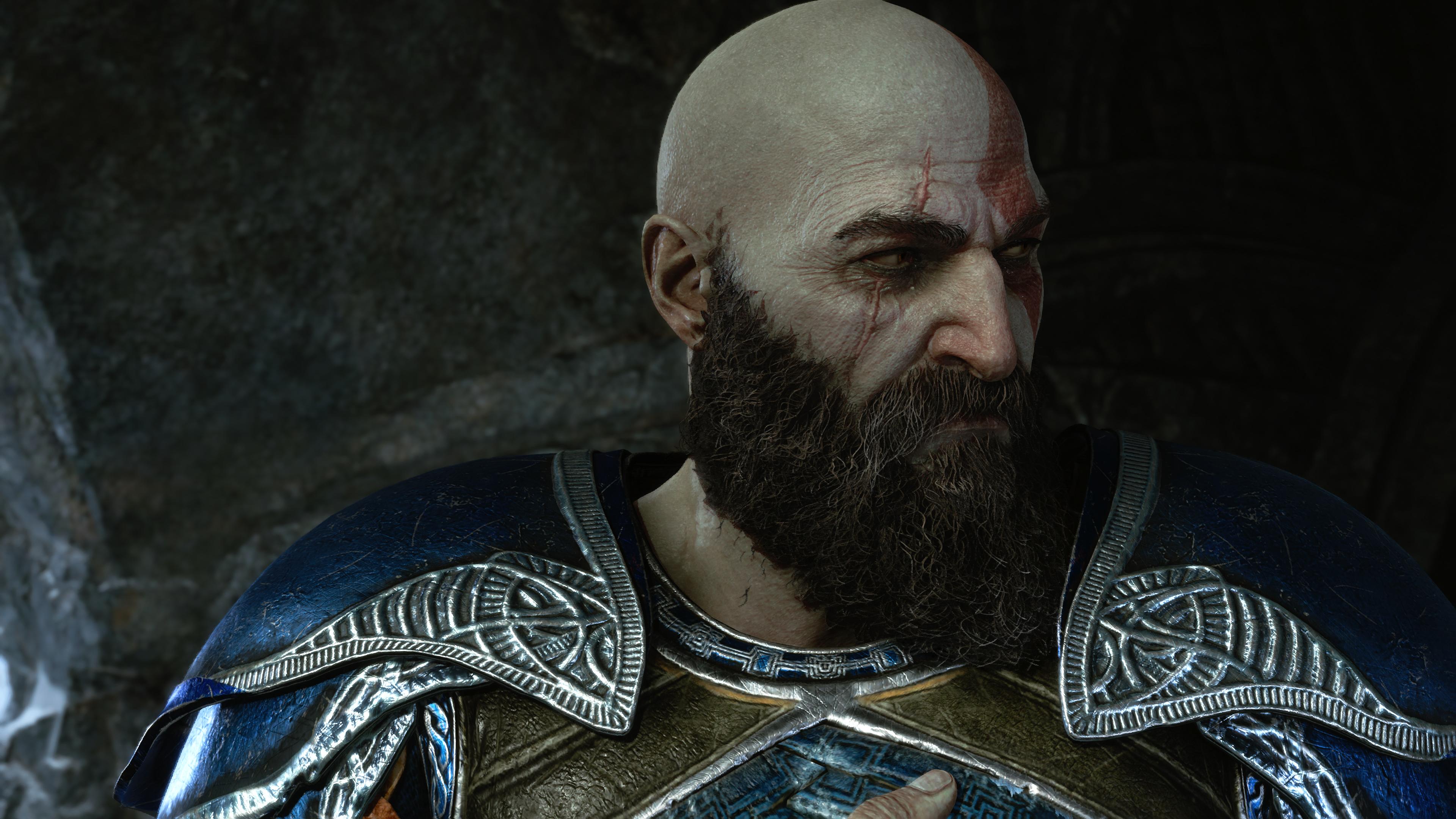
God of War Ragnarok is a dramatic and emotive piece of storytelling that doesn’t shy away from exploring themes including relationships, identity, and death.
These themes culminate in Ragnarok’s epic ending, which sees the seeds planted by developer Sony Santa Monica throughout both Ragnarok and God of War coming to fruition, bringing God of War’s Norse Saga to an epic yet poignant close.
A lot was packed into God of War Ragnarok’s dramatic ending and, as a result, there are a lot of threads to unravel. So we’re going to dig into what exactly happened at the end of Ragnarok, what the events mean for the characters involved, and what they mean for the future of the God of War franchise. Make sure to check out how to unlock the God of War Ragnarok true ending after this, to get the game’s final cutscene.
Be warned, there are major spoilers for God of War Ragnarok ahead. So proceed with caution.
God of War Ragnarok ending: what happened?
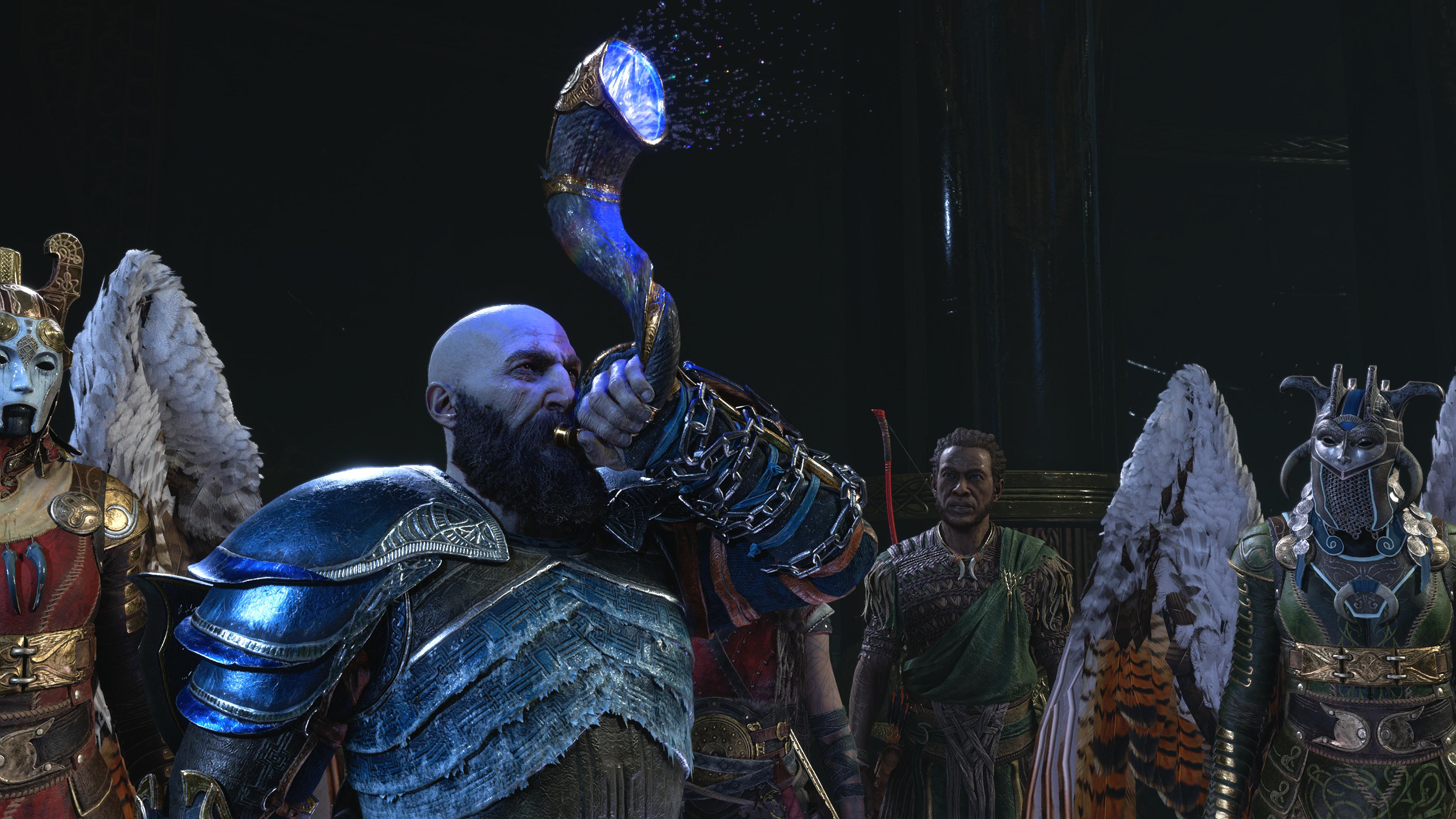
God of War Ragnarok’s ending really begins when you start The Realms at War chapter. Ahead of the battle of Ragnarok, Kratos and his closest allies set up camp at Týr’s temple in Midgard. Knowing what lies ahead, Kratos and Atreus retire to their tents for the night, leaving Mimir with former Valkyrie Queen and lover Sigrun.
As Kratos attempts to drift off, he has a visitor. Atreus, while much more mature than he once was, crawls into his tent to sleep, clearly frightened by what’s to come and in need of his father’s support. He asks Kratos to tell him a story to help him fall asleep. Kratos begins the tell the tale of an old man who had to carry heavy logs of wood every day. The logs were so heavy, Kratos says, that the man wished for death. And then, one day, Death arrived. Kratos cuts his story short as he realizes Atreus is asleep. In the quiet tent, he starts to cry as he watches his son sleep. If the seer Groa’s prophecy is true, Kratos will die at Ragnarok, leaving Atreus alone.
Finally drifting off to sleep, Kratos’ dream seems to be a memory. In it, he follows his late wife Faye around Midgard as she dips her hands in yellow paint and puts them on trees – explaining the yellow handprints we see in God of War. As she does so, Faye expresses her last wishes to Kratos. She explains that when she dies, she is to be burned on a pyre, and then Kratos and Atreus must spread her ashes from the highest peak in the Nine Realms, the premise of the previous game.
Get daily insight, inspiration and deals in your inbox
Sign up for breaking news, reviews, opinion, top tech deals, and more.
Upon waking, Kratos knows the time has come – it’s up to him to set the epic series of events into motion and defeat Odin once and for all. After a rousing speech to his allies in the Realm Travel Room of the temple, Kratos blows Gjallarhorn, the horn he procured when he killed the cocky god Heimdall, summoning his allies across the realms to Asgard for the ultimate battle against Odin and the Aesir. In Norse mythology, Heimdall himself is meant to blow the horn when he sees the Giants approaching Asgard, signaling to the gods that the great battle of Ragnarok has arrived at their door.
From the moment Kratos and his closest allies arrive in Asgard, it’s chaos. God of War Ragnarok’s war of the realms is the epic crescendo the whole game has been building towards. It’s not Týr, however, serving as the general in this battle but Kratos – with us finding out earlier that Týr has been Odin in disguise all along. There’s no time to spare and Kratos heads straight for Odin’s war machines, the ones built by the Dwarves, with Freya at his side.
In the background, we see the great snake Jörmungandr falling in battle, while Fenrir (now in the body of Gorm) pounces on Hel-Walkers and Valkyries dart through the air.
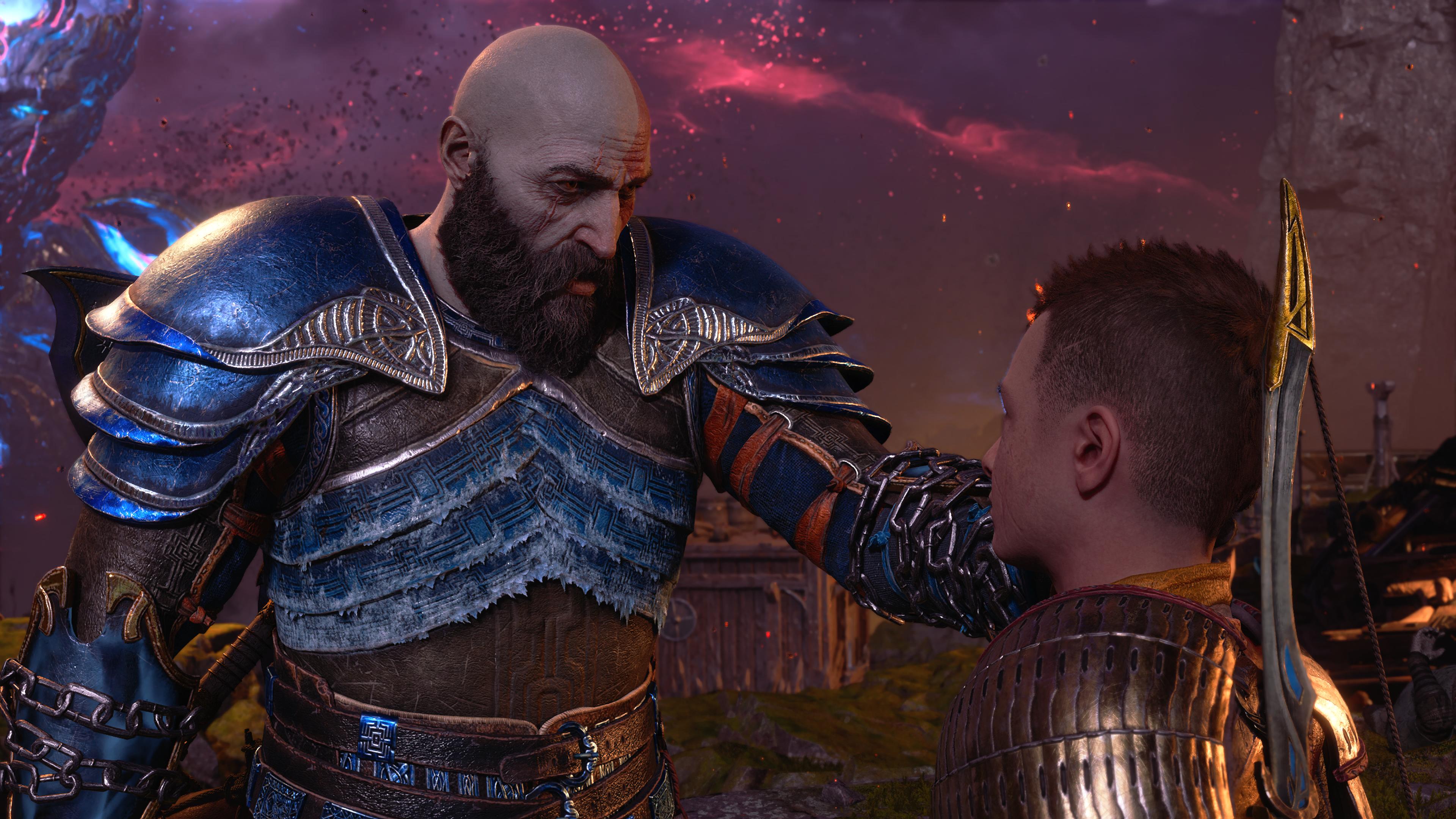
Atreus quickly realizes the horrors of war, worrying about the innocent Asgardians Odin’s placed in his front line to slow the charge against him – he wants to help them but remembers what his father always tells him: “close your heart to it”. Surprisingly, Kratos admits he was wrong to teach Atreus that. He must open his heart to it and all things, as that is what Faye wanted. “We did not come to sacrifice the innocent,” he tells Atreus. “We will die seeking justice, not vengeance.” At his command, the Asgardians are taken to safety.
With the Dwarves refusing to join the battle, a sultry Sindri takes it upon himself to tackle the war machine. With one hit of a hammer, they go down, and he (still blind with anger over Brok’s death) runs off into battle in search of a fight – followed by a very apologetic and worried Atreus.
After keeping Sindri safe, Atreus has another angry friend to worry about: Thrúd. Thor’s daughter isn’t happy that Loki has betrayed them and that he’s hellbent on bringing down her grandfather who, in her eyes, can do no wrong. Just as Thrúd is ready to unleash Hel on Atreus, her mother, Sif, steps in to set the record straight. The only reason Sif had tried to stop Thrúd from becoming a Valkyrie, she explains, was that she didn’t want her daughter to fight for Odin. Thrúd is convinced by her mother’s pleas and joins Atreus, Kratos, and Mimir on the hunt for the All-Father.
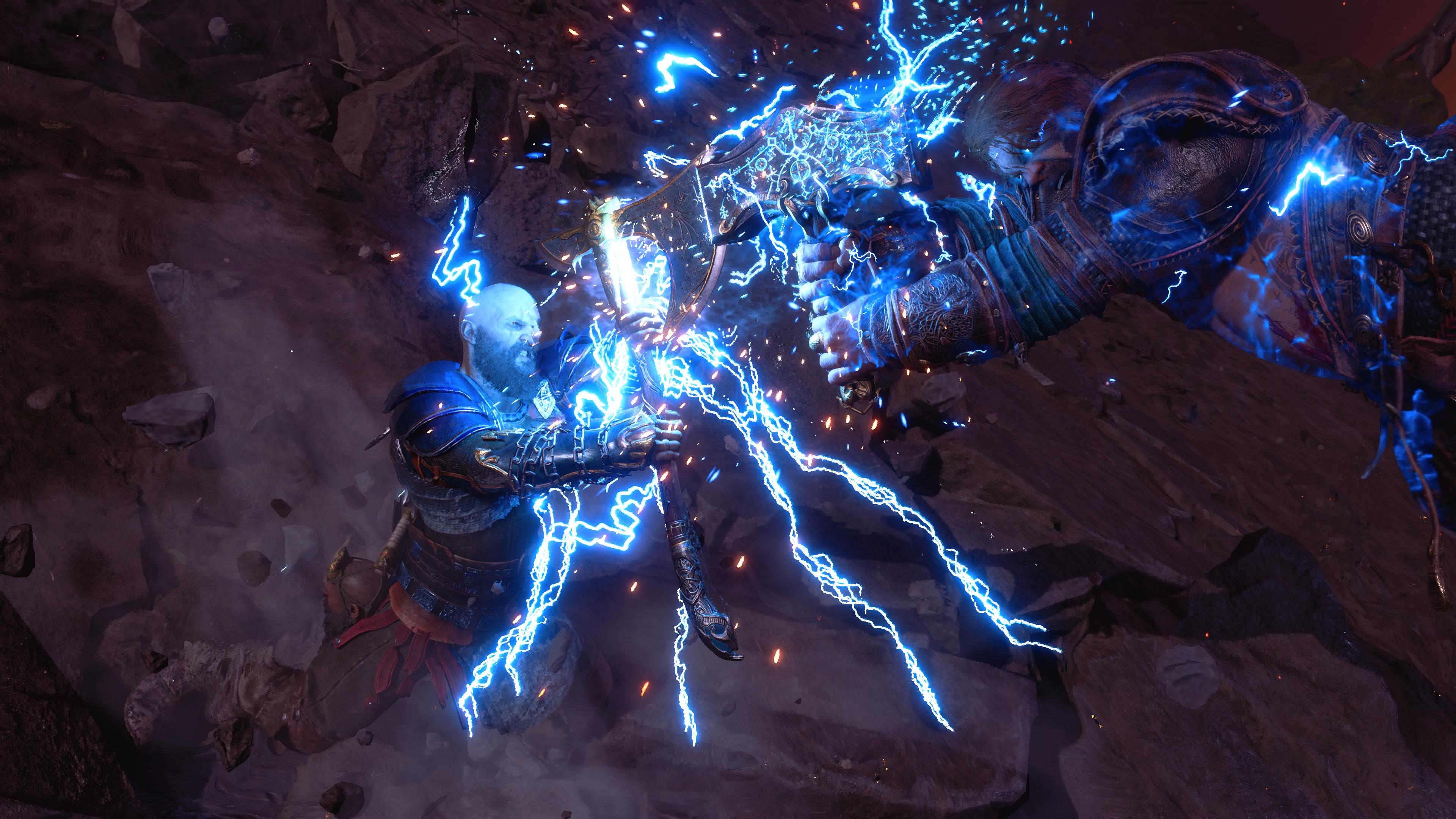
There’s just one problem: her father. Thor isn’t best pleased with Atreus or Kratos for luring his daughter over to their side. He’s got a chip on his shoulder about his own father, Odin, who treats him like an attack dog – and Kratos is the one he wants to pay the price. After a tough battle against the God of Thunder, Kratos decides to spare him “No more,” Kratos says. “For the sake of our children, we must be better.” Thor agrees.
Odin’s not very happy that his son no longer does his bidding, not killing who he wants him to kill. So unhappy, in fact, that he thrusts a spear through Thor, killing him.
Then begins another difficult battle, this time against Odin. When Kratos takes Odin down, Freya appears and wraps a binding spell around the All-Father’s neck. She’s got a bone to pick with her ex-husband and has waited some time for her revenge. Right now, however, she simply wants him to bow to her. Odin throws a raven at Freya, freeing himself from her spell. Once defeated, Odin desperately asks Atreus to put on the mask he had him searching for – the one that will allow him to look through the world tear and find infinite knowledge.
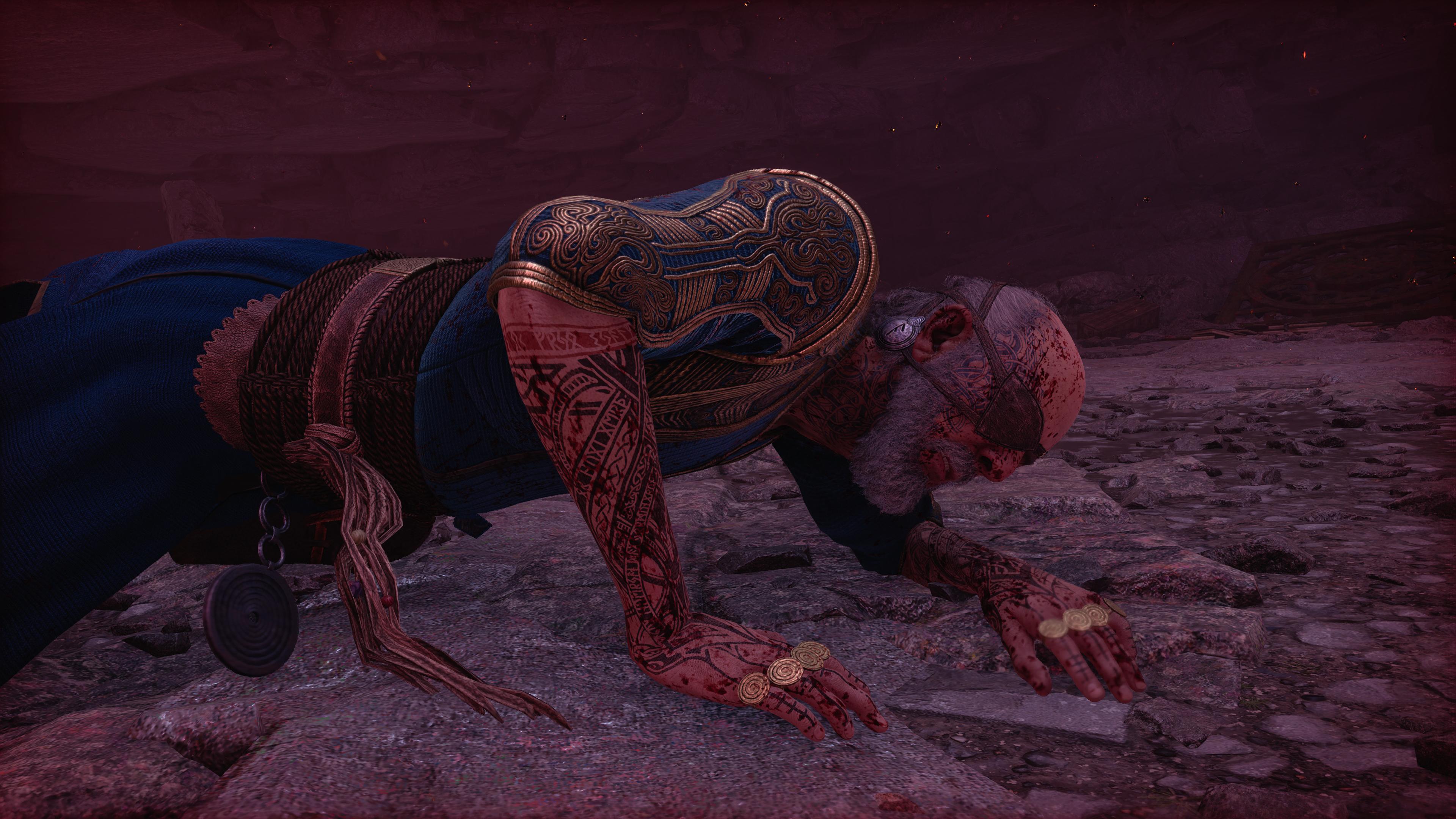
Torn, Atreus looks to Kratos, who tells him that ultimately it is his choice what he does. Atreus breaks the mask and, after much pleading from Odin, places his soul into the Loki Giant marble Angrboda gave him earlier. Keeping to his promise to let her be the one to kill Odin, Kratos hands the marble to Freya, who decides she doesn’t want it. Someone else does, though: Sindri grabs the marble and smashes it with his hammer before disappearing.
But it’s not quite over yet. Ragnarok, the monster fire giant Surtr transformed into, is still rampaging. Fenrir appears from a tear he’s ripped in the realm, with Angrboda at his side. To allow time for everyone to escape, Freya’s brother Freyr sacrifices himself by holding back Ragnarok. Not wanting to see Freyr left behind, Atreus pushes Kratos through the tear to stay with Freyr. It’s unclear exactly what happens.
Atreus is then woken up by Valkyrie Eir. He’s in Hoddmimis Holt and must find his father. As he looks for Kratos, he passes his surviving allies, including Thrúd, Sif, Lúnda, and Mimir. He can’t stop too long with any of them, his father is looking for him, they say.
Upon reaching Angrboda and Fenrir, Kratos finds Atreus. Great, because she has something she wants to show them both. As the father and son follow her, Atreus asks for the ending of the story Kratos was telling him as he was falling asleep. Kratos explains that though the old man wanted death, when Death finally arrived, he realized he did not want it. Instead, the man asked Death to help him lift the heavy logs onto his back.
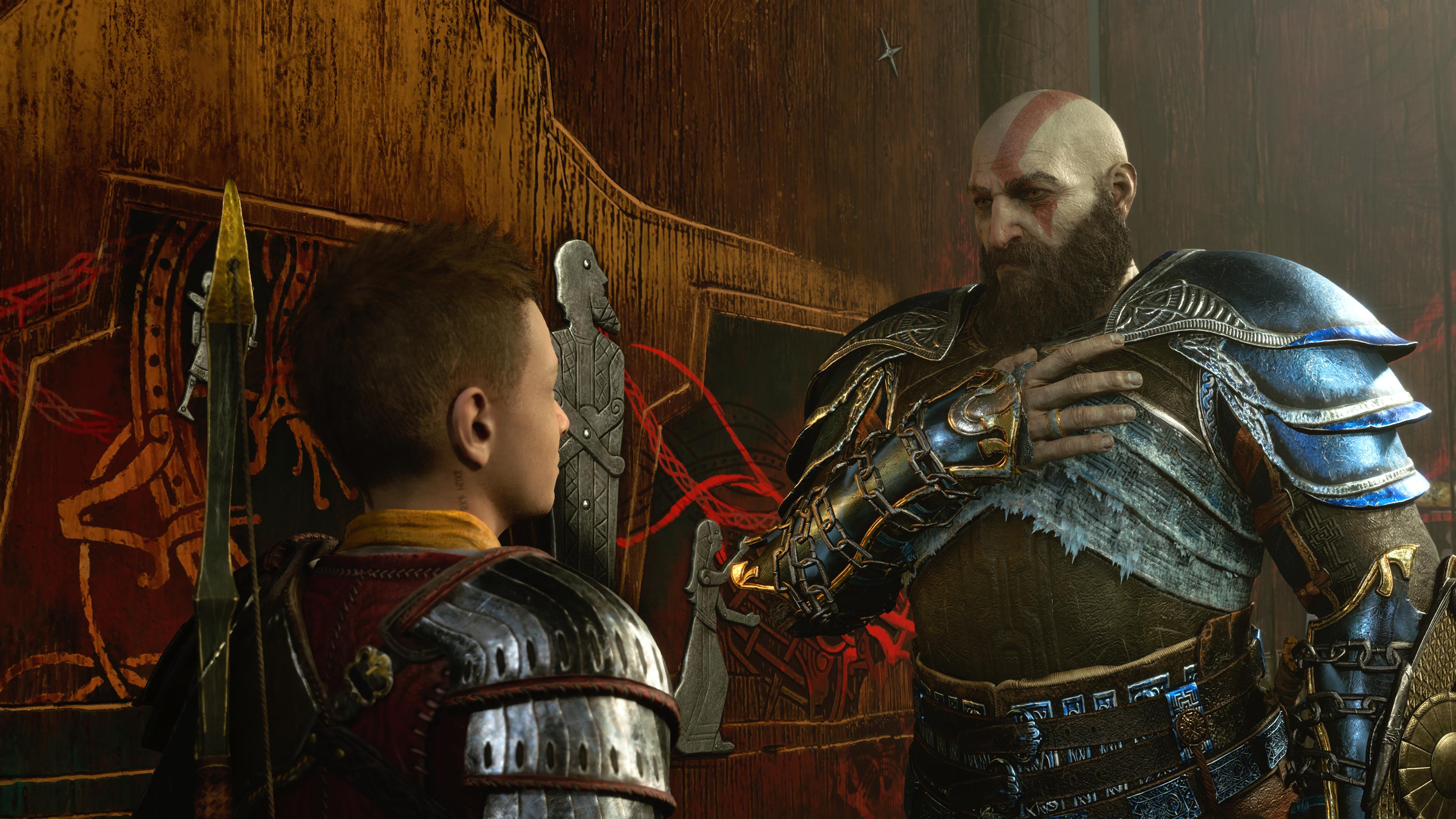
They finally reach what Angrboda wanted to show them. It’s another Giant shrine, but this prophecy is a bit different than the one they saw before. This one shows what actually came to be: their victory at Ragnarok.
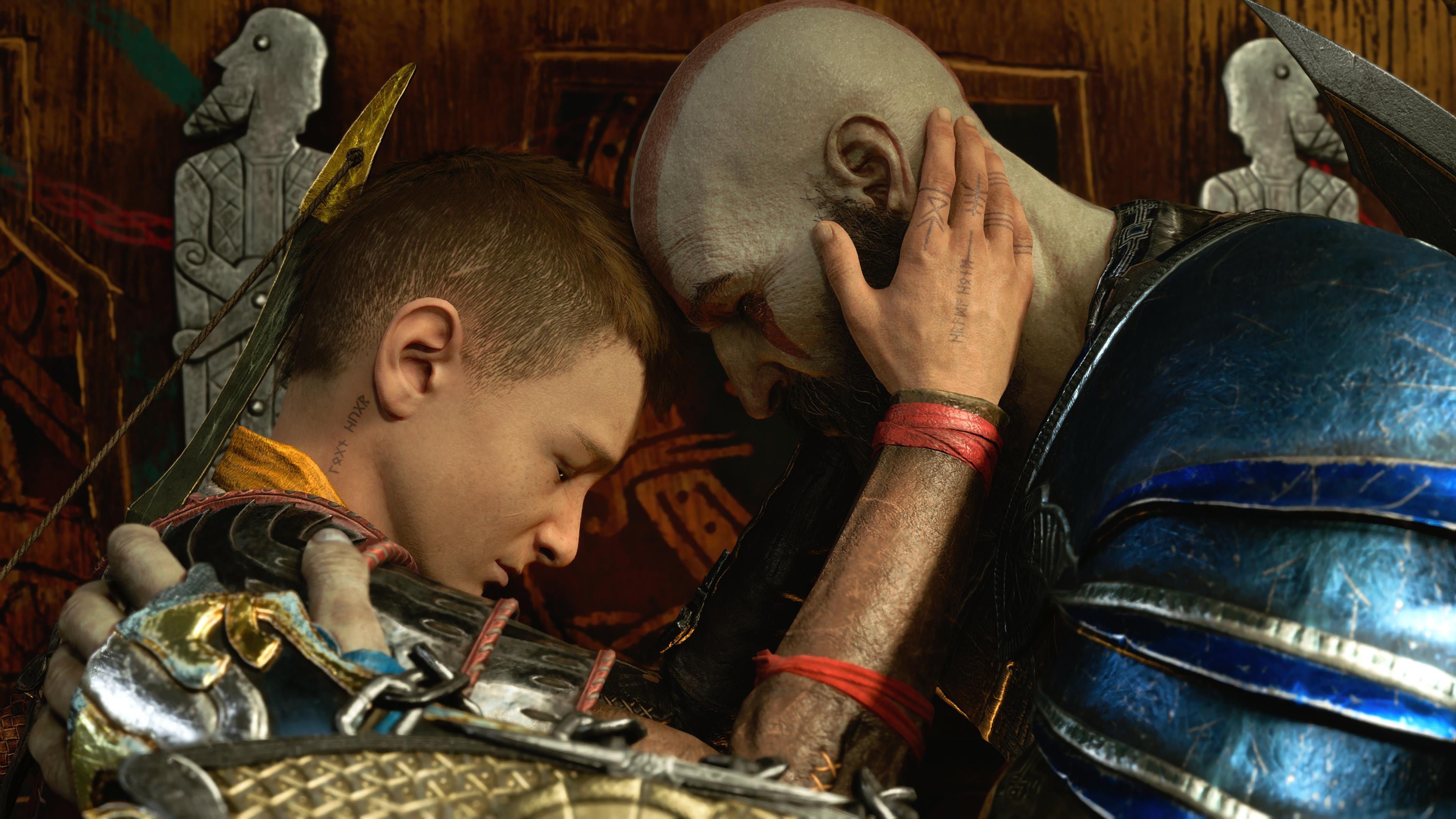
It’s time for Atreus to come clean to his father about the Giants. He wants to go in search of them, but it’s something he has to do alone. “Does it frighten you?,” Kratos asks his son. “Yeah,” Atreus responds. “That is why you must do it,” his father tells him. “Like you taught me, yeah.” Kratos tells his son that it was his decisions that allowed them to survive Ragnarok and that he believes he is ready to go solo. “Loki will go,” Kratos states. “But Atreus remains.”
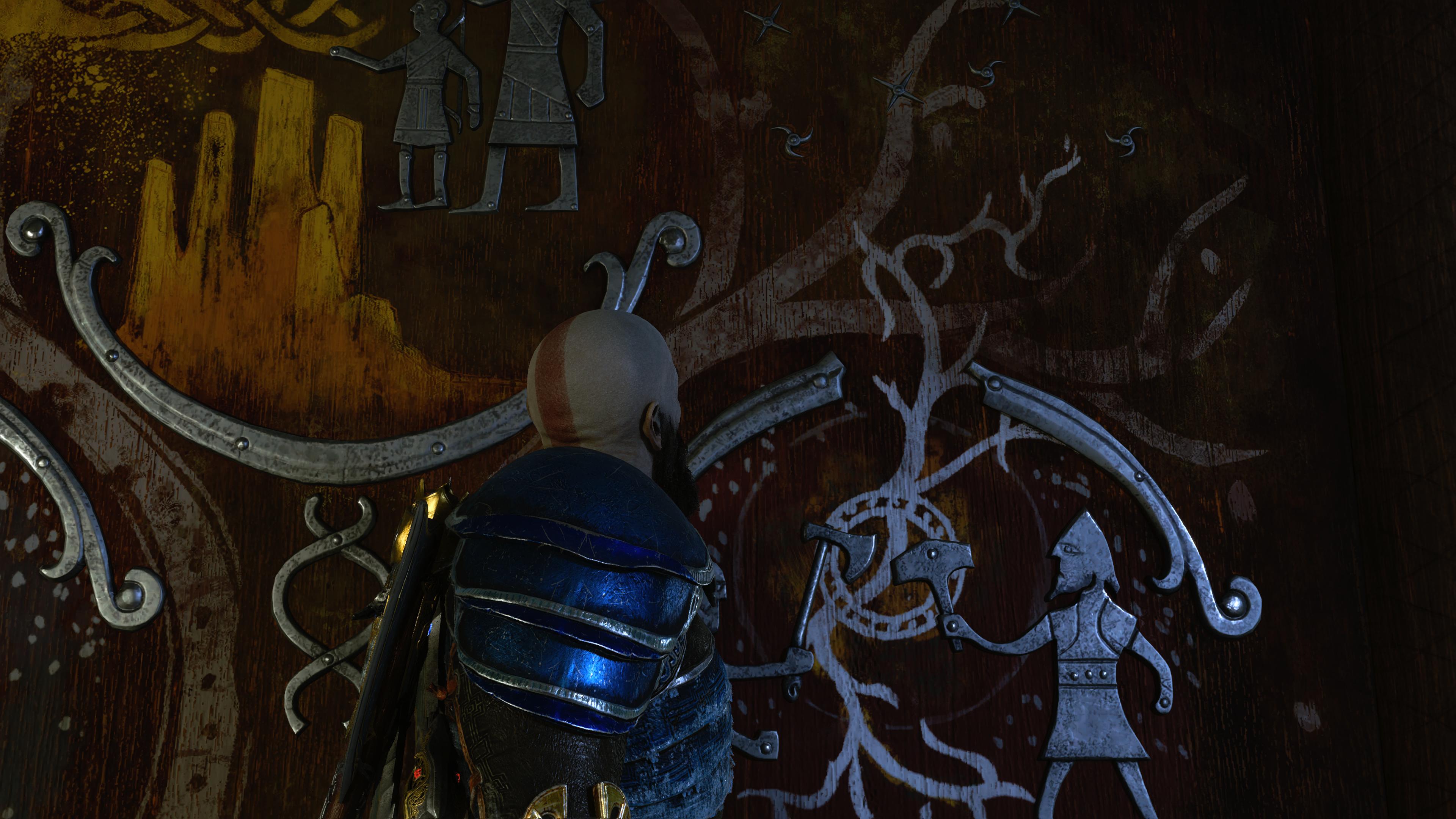
Atreus sets off on his own, leaving Kratos with the shrine Behind it, he finds another panel that shows a large depiction of him, being worshipped as a god. He breaks down in tears, telling Mimir and Freya that he has seen “a path he never imagined”.
“There is much to do, much to rebuild,” he tells the other two. Will you join me?” With that, the credits roll, as you set off to clean up the remaining side quests and collectibles.
God of War Ragnarok ending: what does it all mean?
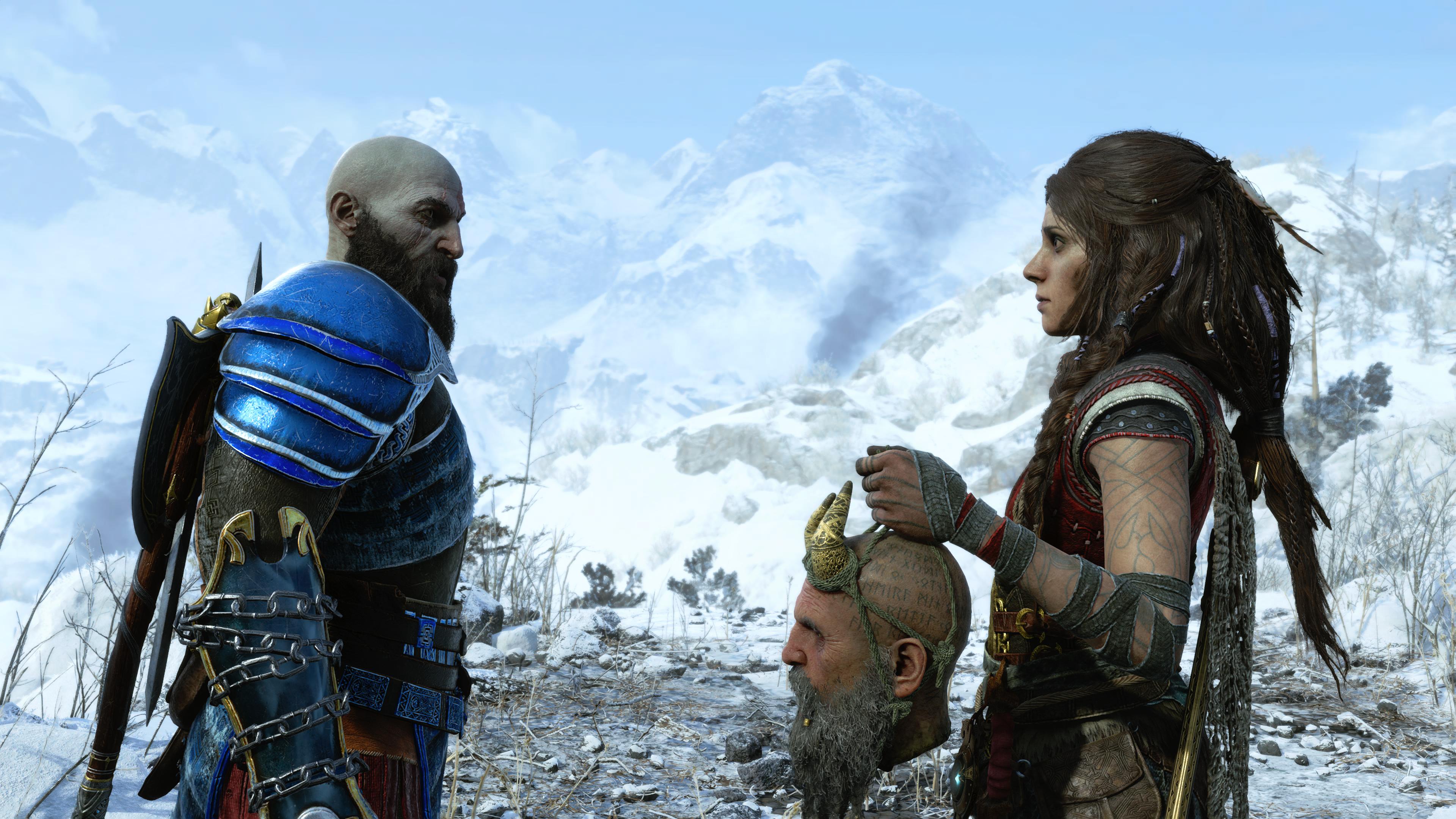
There’s a lot to dissect there but if you have been paying attention to the breadcrumbs Sony Santa Monica laid down throughout both God of War and God of War Ragnarok, things make a bit more sense.
The hidden prophecy
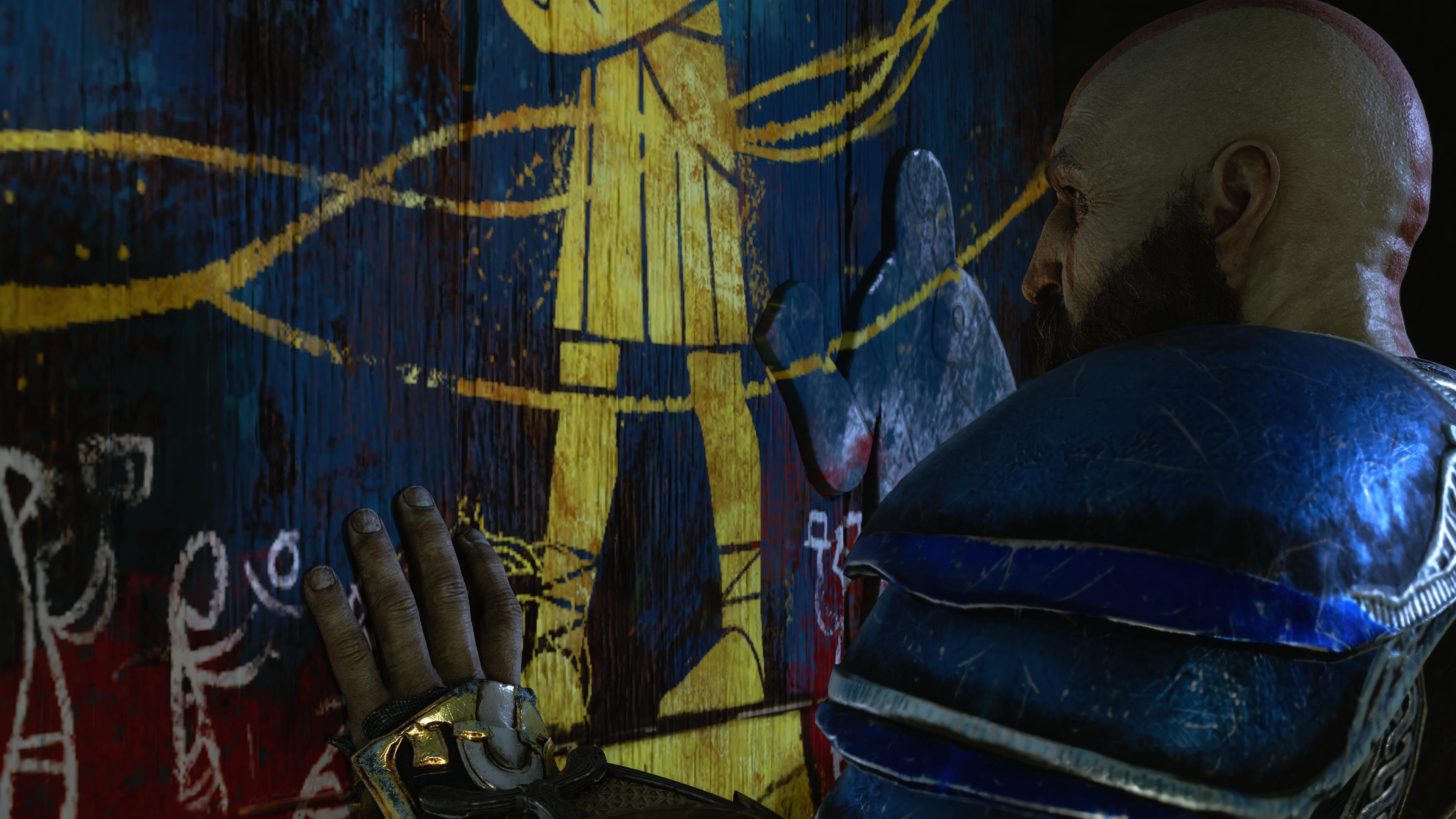
The main takeaway from Ragnarok’s ending is that Kratos was The Champion all along, not Atreus – and Faye knew it. In fact, to stop Atreus and Kratos from finding the real prophecy, and therefore protect them, she went against her people and destroyed the shrine in Jotunheim. Why? Because she wanted them to forge their own fate.
It’s a theme that’s come up again and again in Ragnarok: prophecy isn’t everything, we decide our own fate. Whether it’s with Thrúd trying to become a Valkyrie against her parents' wishes, Angrboda continuing to help Atreus after her role was seemingly complete, or Týr ultimately playing no role in the battle of Ragnarok, not all prophecies come to pass, and so we shouldn’t be beholden to them.
Kratos is emotional about the hidden prophecy because, by his own admission, it’s not a path he saw for himself – but Faye knew what he was capable of all along.
Kratos and Atreus
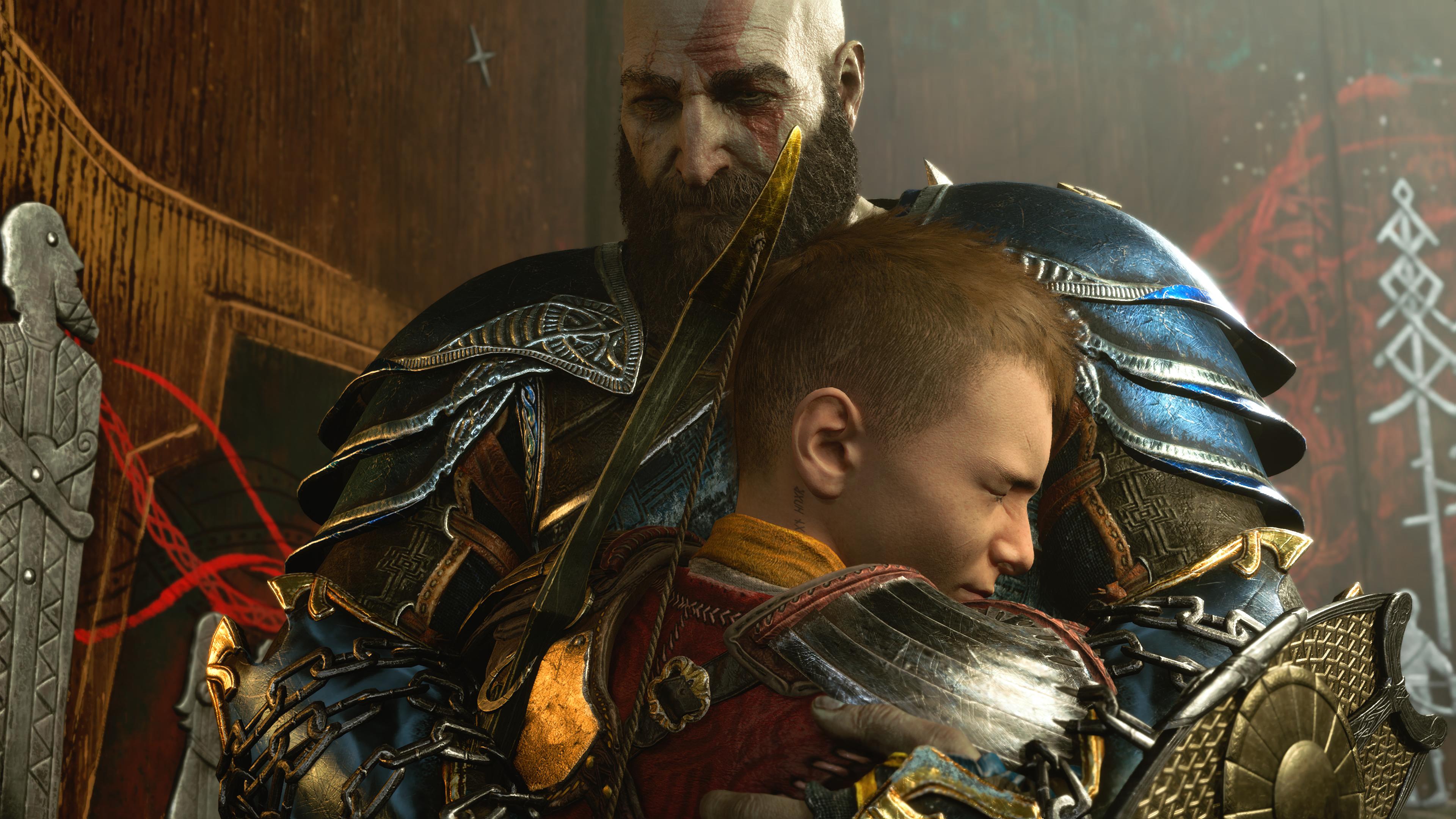
Kratos and Atreus’ relationship has been through a lot. The father and son shared largely tense exchanges in God of War as they essentially got to know one another, before establishing a bond by the time they spread Faye’s ashes. At the start of God of War Ragnarok, a few years after the end of God of War, we find the pair have a much stronger relationship, with Kratos grumblingly trusting Atreus and allowing him to stretch his wings.
Throughout Ragnarok, however, we see that newly strengthened relationship being seriously tested as Atreus pushes the boundaries (as all teenagers do) in an attempt to discover how his role as Loki fits into his identity. Atreus’ determination to prove he no longer needs his father’s guidance, alongside Kratos’ overly cautious attempts to protect his son, takes their relationship to breaking point. But it’s something that ultimately brings them closer together, allowing them to appreciate each other more.
By the end of God of War Ragnarok, the two have mutual respect and understanding for one another. Kratos has admitted his prior faults and embraced the sentimental aspects of Atreus that he previously felt contempt for, while Atreus appreciates the teachings of his father that he once resisted.
This culminates in the final scene of the main storyline, when Atreus knows it’s time for him to set off on his own – and Kratos supports him. Kratos finally has trust in his parenting capabilities, he’s raised a warrior who is as fierce as he is empathetic. He’s done a better job than he probably ever expected. It’s now time to trust that what he taught Atreus will keep him safe when Kratos isn’t there.
The flashback with Faye
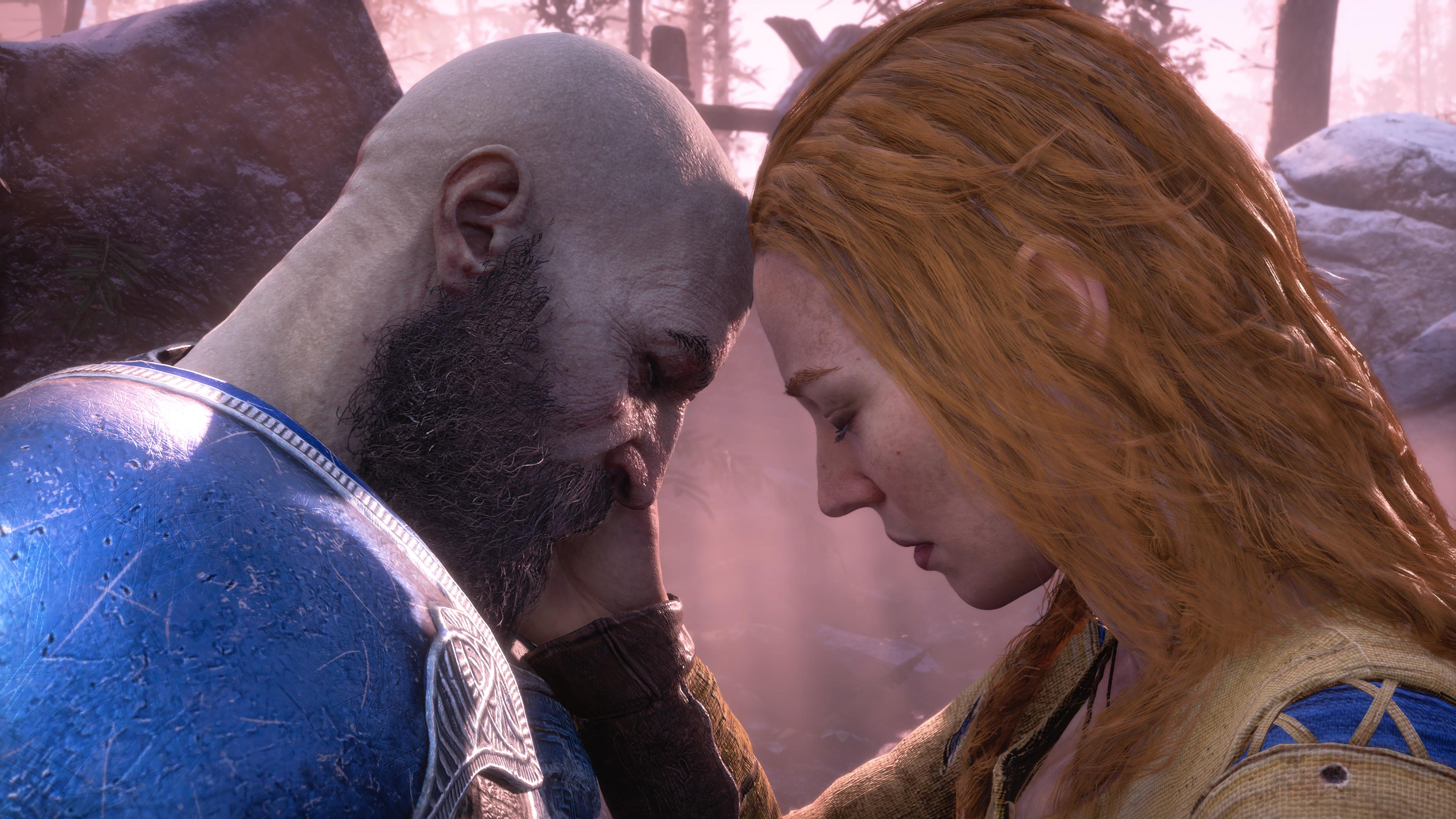
While it takes Kratos time to come to terms with the fact he is a good father, it’s something that his late wife Faye never seemed to doubt. During the flashback where she puts her handprints on the trees, it seems Faye may know something Kratos doesn’t – that she’s going to die sooner than he might think. “The culmination of love is grief,” she tells her grumbling husband, before asking him to keep Atreus protected and safe. Kratos is visibly uncomfortable with the conversation, having explained in an earlier flashback that he fears for Atreus and thinks it's better his son does not know him, but agrees anyway.
Faye never seemed to doubt Kratos would be a good parent. She seemed to know that he would have the evolution that we see through God of War and Ragnarok, perhaps because of the prophecy shine revealed at the end of the game or maybe simply because she knew her husband wasn’t simply the grumbly warrior that everyone else saw.
The old man story
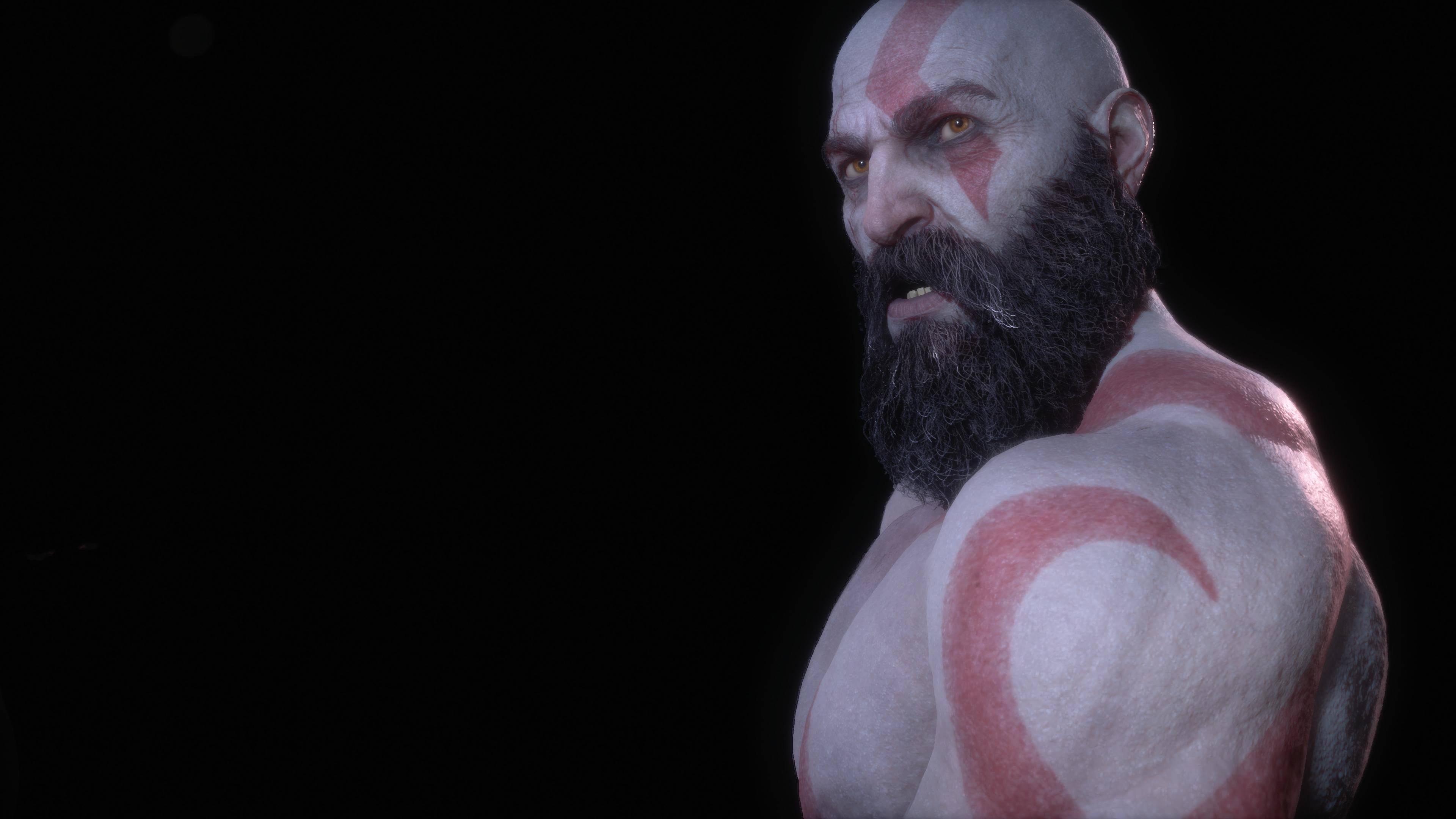
The tale Kratos tells Atreus to help him fall asleep isn’t simply a bedtime story but is almost a premonition of coming events. The old man in the story represents Kratos, with the heavy logs representing his past mistakes – which haunt him every day.
Regretting mistakes is a big theme in Ragnarok. Kratos expresses to Faye, in flashbacks, that his past mistakes make him reluctant to get close to his son, while Atreus beats himself up over the mistakes he made as a young warrior. “Mistakes are impossible to sail away from or to forget,” Kratos tells Atreus earlier in the game, when his son talks about sailing away from his own mistakes on Freyr’s paper boat. “I have tried,” Kratos tells Atreus. “If you sail, do it towards somewhere.”
The old man wishing for death is an important element of this story, particularly at the time in which it’s told. At this point in Ragnarok, we don’t know whether Kratos will survive the ultimate battle or not. Groa’s prophecy suggests that the Spartan may not make it out of the war alive and Kratos seems very aware of that. There seems to be a mix of emotions on his face as he tells the first part of the story: regret, relief, fear, and, most importantly, concern for Atreus. It’s a side of Kratos that’s rarely seen and one that’s heartbreaking to watch.
The first part of the tale ending on a cliffhanger leaves us on edge too. What happens when Death comes? Does the man (in other words Kratos) die? Fortunately, that’s not all of the story.
After Ragnarok, when we see that Kratos has made it through the war of the realms, he finishes the story. Death arrives and the old man realizes he doesn’t want to die but instead asks Death to help him lift the logs onto his back. Kratos’ past mistakes are heavy logs to bear, sure, but being faced with Death has helped him to make peace with them and has given him the fuel to keep going – even if it’s hard.
Other characters
Ragnarok's ending not only explored the relationships between Kratos and Atreus, but brought to a head the connections between the game’s other key characters.
Thor, Sif and Thrúd
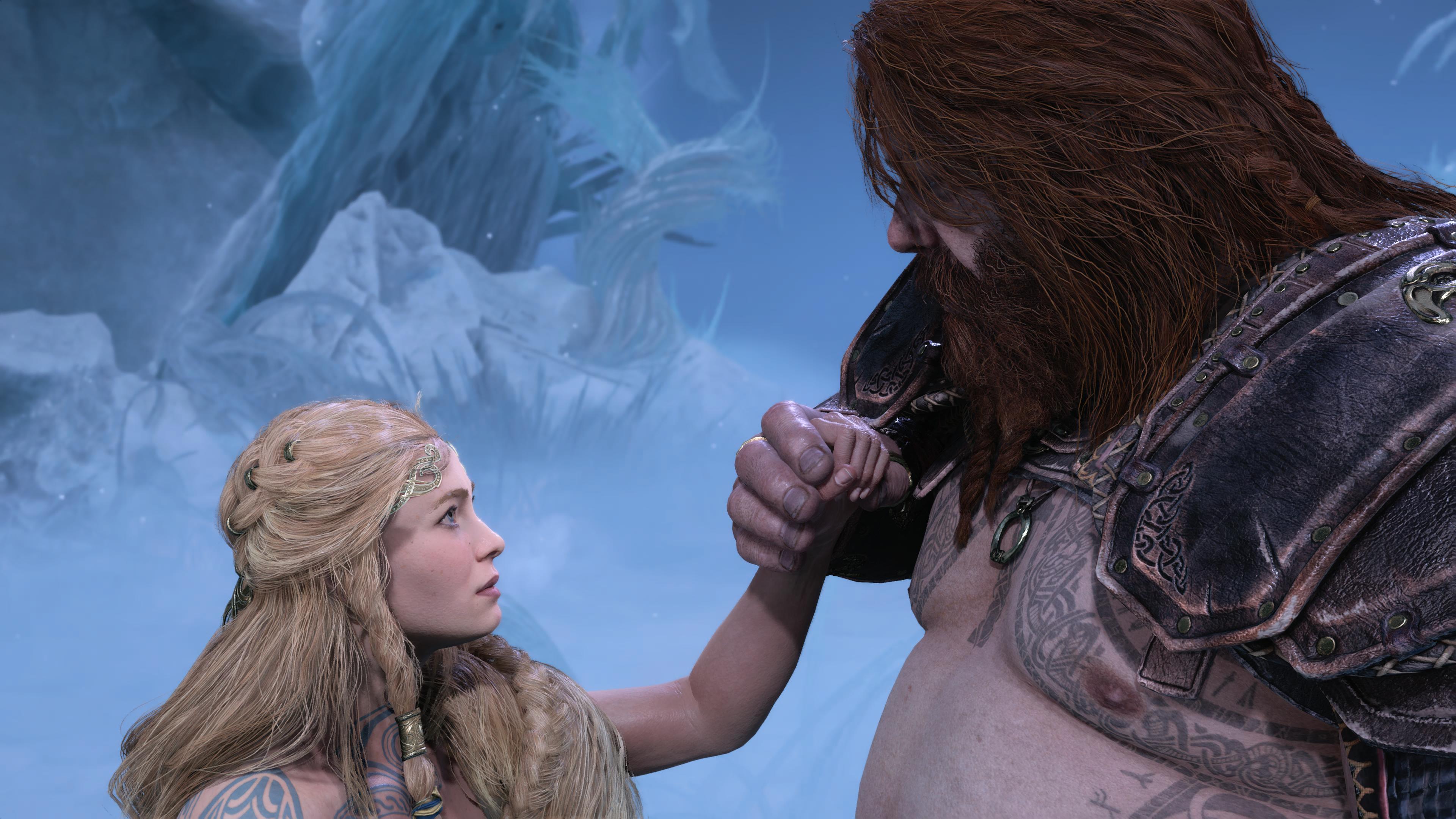
Let’s start with Thor, Sif, and Thrúd. From the moment Atreus lands in Asgard, we see how Thor and Sif’s daughter Thrúd struggles against her parents to pursue her dream of becoming a Valyrkie. Thrus and Atreus relate to one another, both have somewhat overbearing parents that are trying to shove them into a mold they don’t feel like they fit.
There are some key similarities between Thor and Kratos too. Both are warriors who have grown up around much bloodshed, turning them into harsh parents. While Kratos isn’t the stoic father he was in God of War, Thor also seems to be trying to be a better father. We learn throughout Ragnarok that he was particularly brutal with his late sons Magni and Modi and, as a result, stopped drinking and became more protective over his daughter Thrúd. Like Kratos, however, he became almost too protective.
By the end of Ragnarok, Thor realizes (with Kratos and Atreus’ assistance) that his remaining child is more important than the anger and grief he clings to. Thrúd is capable of becoming a Valkyrie, and it’s up to him to protect both her and his wife from Odin’s tyranny. It’s a move that costs him his life, but it’s heartwarming to see him stand up for what he believes in. What’s more, if you explore a bit after the game’s ending, you’ll find Thrúd taking up Mjölnir herself.
Freya
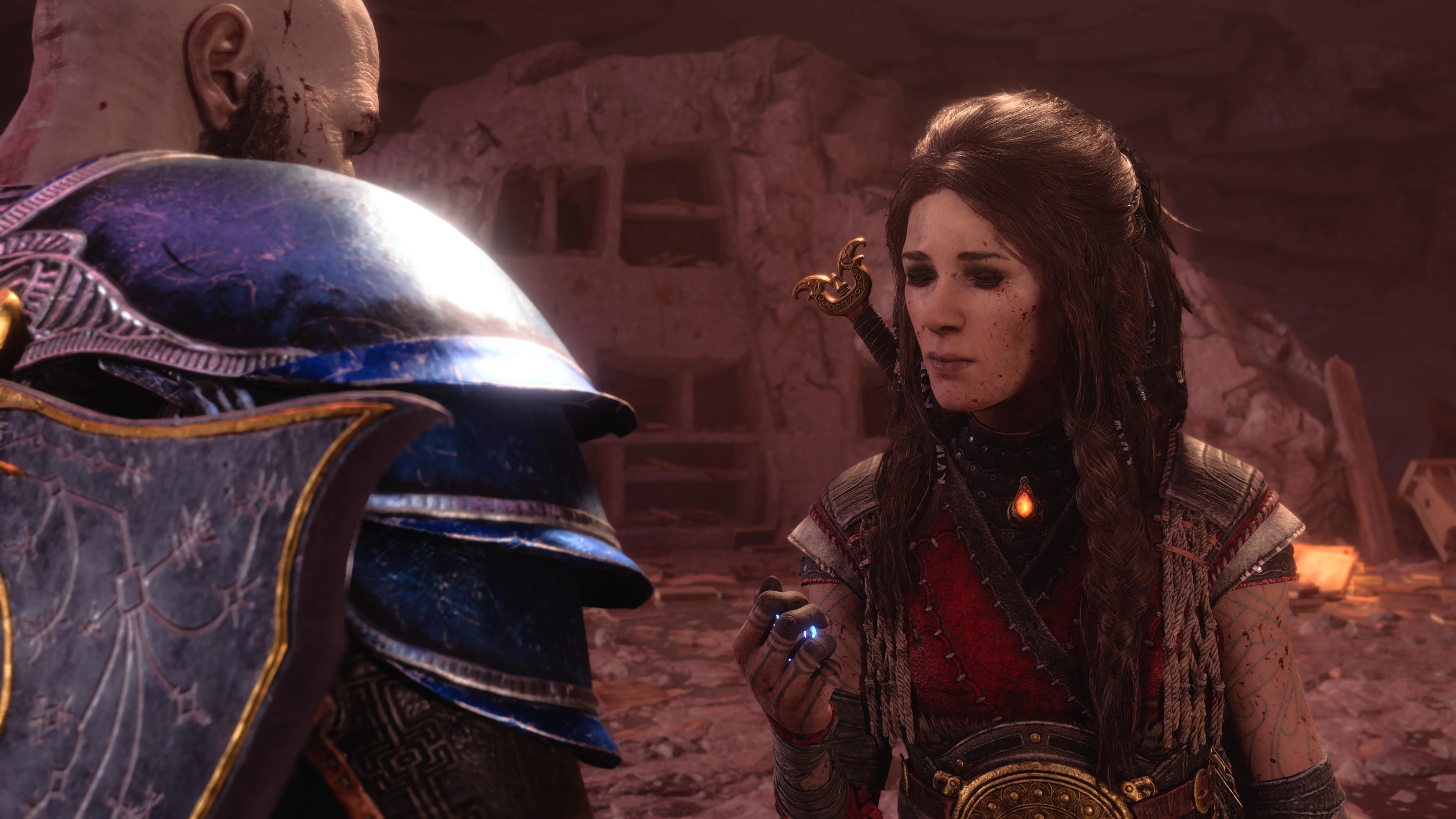
It’s not just Thor who learns to let go of anger. When we first start Ragnarok, Freya is hellbent on revenge against Kratos for killing her son Baldur (even though he was going to kill her first). Eventually, she agrees to let go of her vendetta temporarily to work with Kratos and Atreus to take down their real enemy: her ex-husband Odin. She calls a truce with Kratos until Odin is dead, agreeing she can kill the Spartan afterward if she so chooses. She doesn’t, however, nor does she choose to kill Odin when it comes to the crunch. More death won’t bring back Baldur. Instead, Freya chooses to join Kratos on his adventures and she seems much happier for it.
Mimir
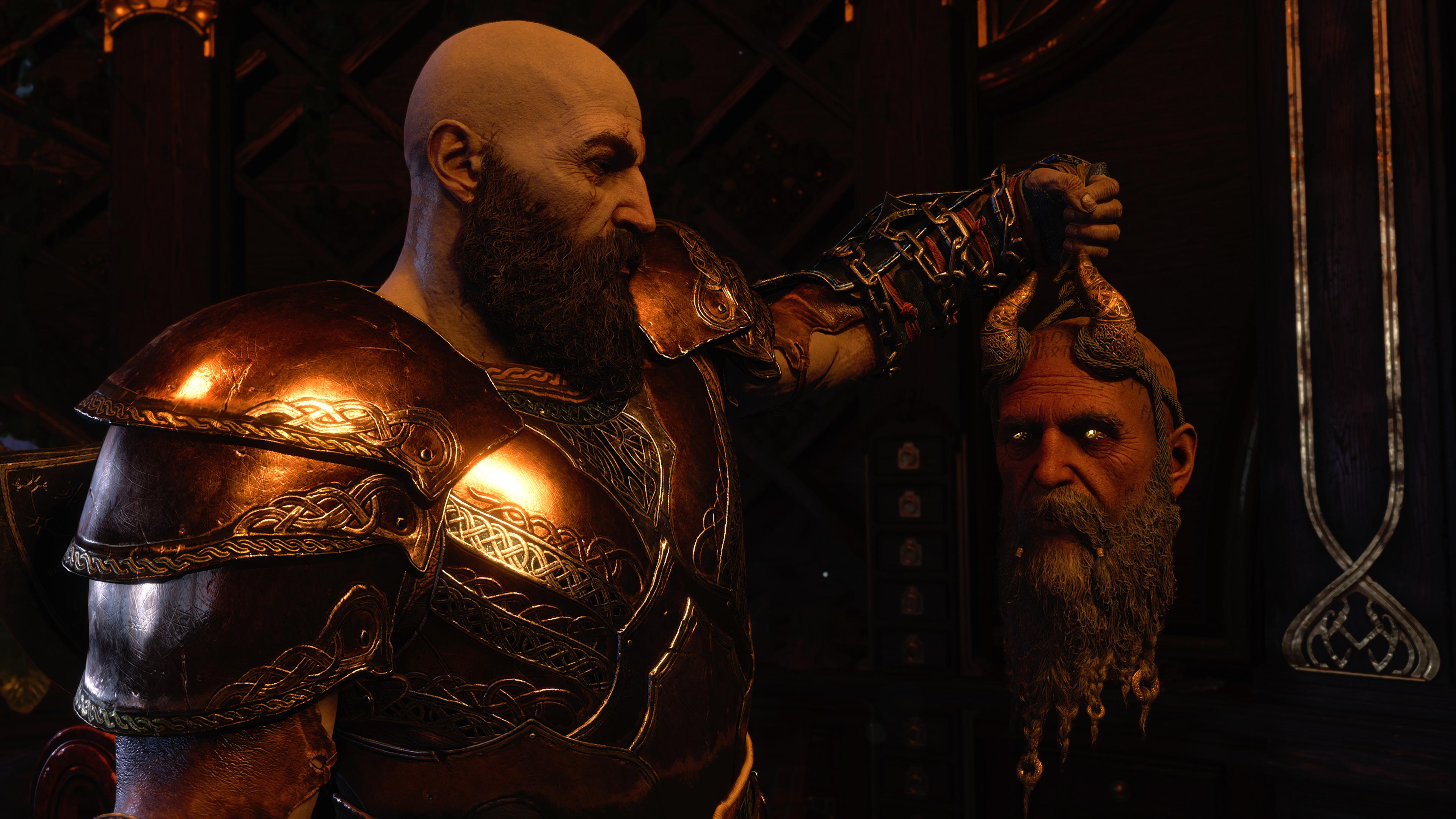
Mimir mostly provides comic relief in God of War but, in Ragnarok, we find out about some of his (quite dark) past mistakes. Back when his head was still attached to his body, the smartest man alive assisted Odin in some pretty atrocious acts, including chaining up an innocent creature and majorly screwing over the dwarves. While Mimir’s story isn’t the focus of the main story, several of Ragnarok’s side quests delve into Mimir’s mistakes. Unfortunately, they can’t all be fixed. It’s nice, then, to see him reunited with his love before Ragnarok before continuing to journey with his friends.
Sindri
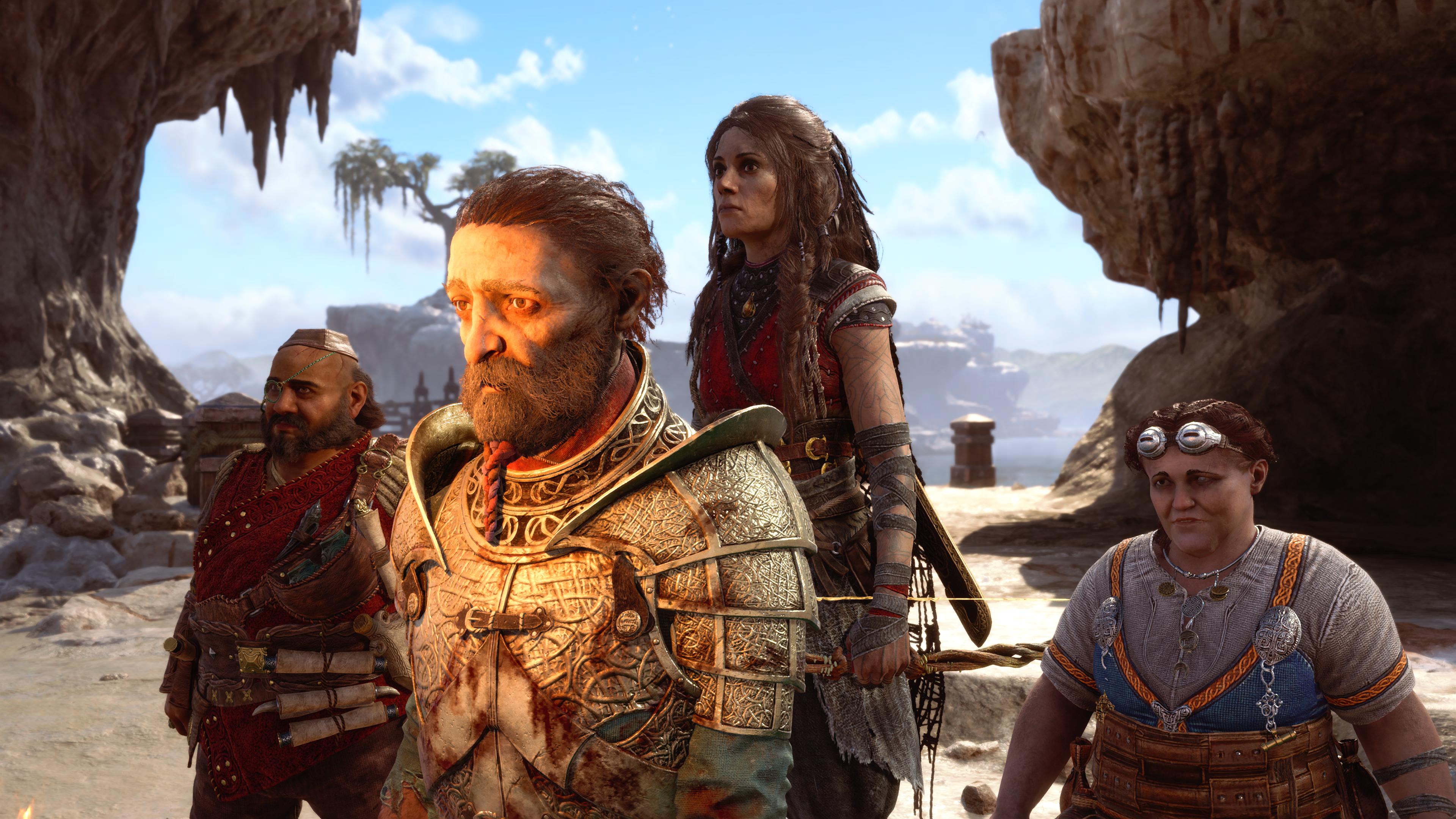
Oh Sindri. Poor Sindri. Ragnarok wasn’t particularly kind to our favorite nervous dwarf. Ragnarok began with Sindri assisting Atreus in his sneaky adventures, with the pair becoming extremely close. But after Brok is killed by Odin, the dwarf’s grief fills him with fury towards his teenage friend. Brok’s death wasn’t necessarily Atreus’ fault, but try telling Sindri that. Even after the game’s true ending, it’s unclear what the future holds for Sindri, who now isolates himself in Týr’s abandoned temple.
Angrboda
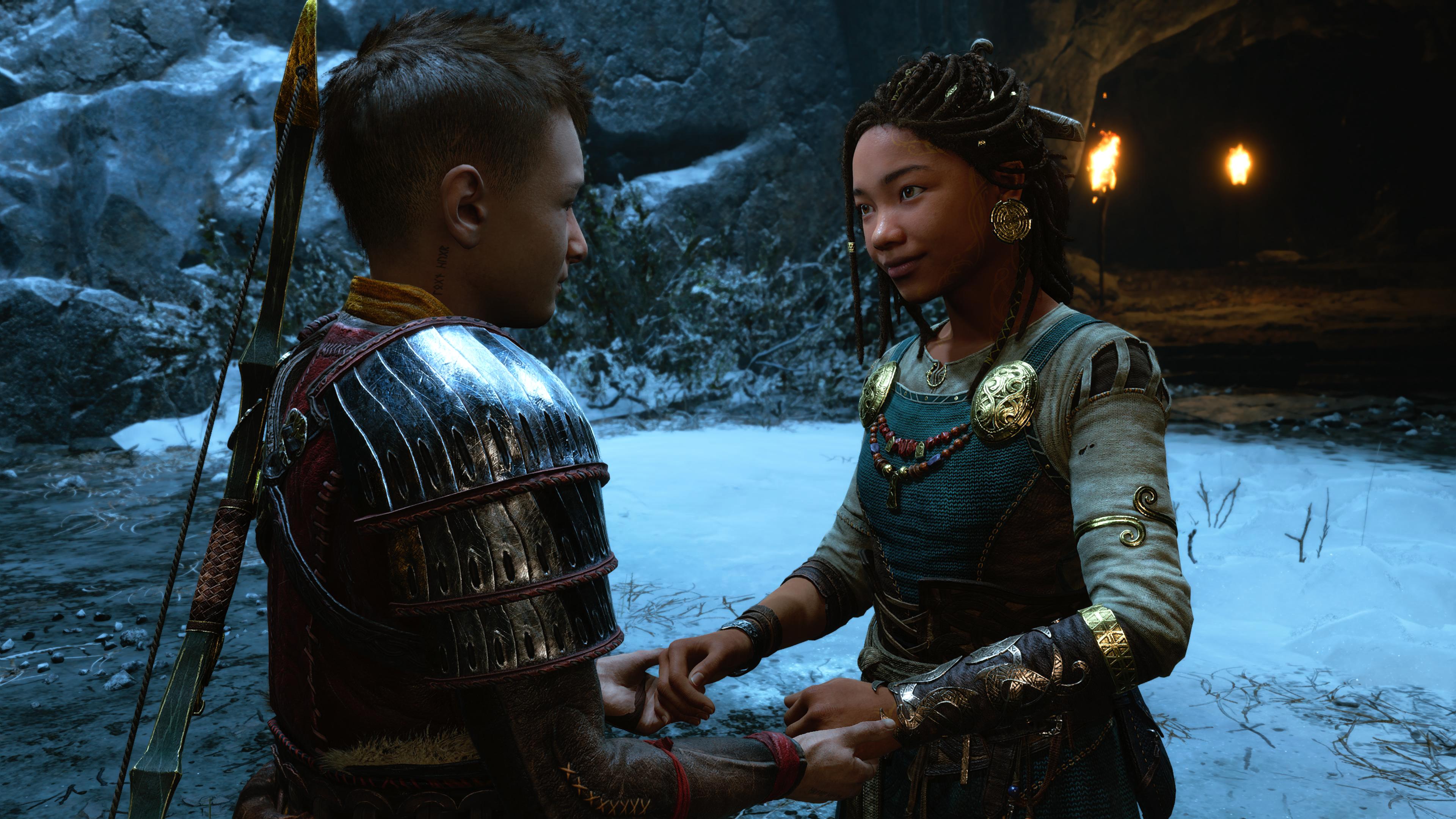
We’re pretty sure we’re going to see Angrboda again. After all, in Norse mythology, she’s Loki’s wife. Ragnarok certainly seems to set her up as a romantic interest with the hormone-fuelled Atreus, so we imagine that she’ll make an appearance in his future adventures.
God of War Ragnarok ending: what's next?
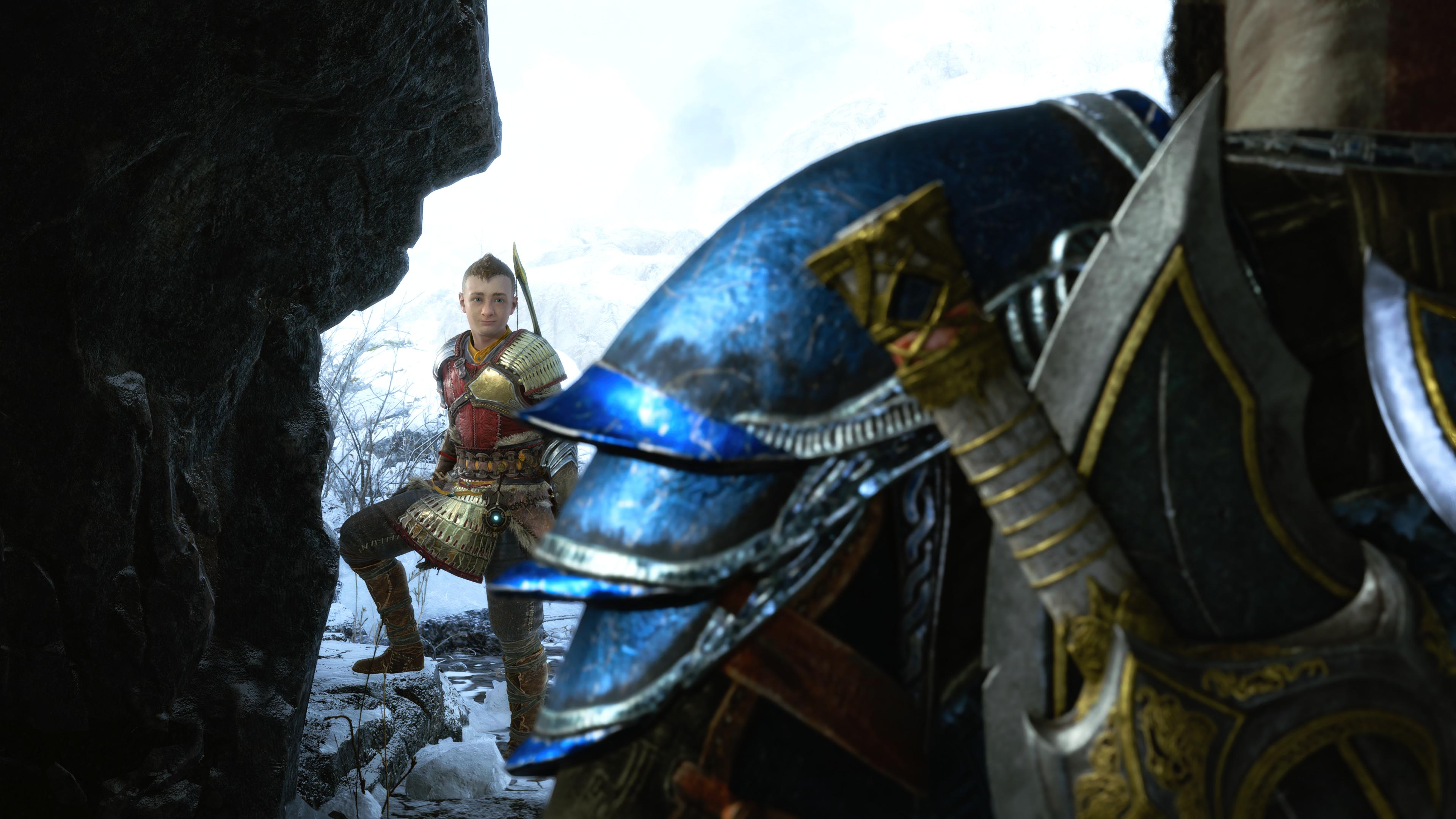
We know that God of War Ragnarok marks the end of the series’ Norse saga but what isn’t clear is where it goes next. God of War has already explored both Greek and Norse mythology but, with so many mythoi out there, it’s hard to pinpoint exactly what the theme might be next – if there is one.
What the end of Ragnarok does hint at, however, is that Atreus could be the main protagonist of a future entry. After all, when we see him last he is heading off to find the giants by himself. Perhaps he is the next God of War? Kratos’ journey does seem to have come to a conclusion at the end of Ragnarok. This is just speculation, however, and we could well see us picking up with Kratos another few years down the line when an adult Atreus has returned from his journey. With Death not having earned Kratos quite yet, anything is possible.
An award-winning games journalist, with seven years of experience in games journalism and a degree in journalism from City University, London, Vic brings experience from IGN, Eurogamer, The Telegraph, VG247, Dot Esports and more to the TechRadar table. You may have even heard her on the radio or speaking on a panel, as she’s previously appeared on BBC Radio 4, BBC Radio 5, BBC Radio Ulster and more. Not only is Vic passionate about games, but she's appeared on both panels and podcasts to discuss mental health awareness. Make sure to follow her on Twitter for more.